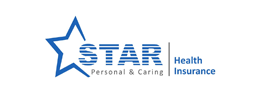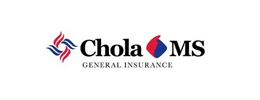Last updated on: September 19, 2025
The Insurance Regulatory and Development Authority of India (IRDAI) has established comprehensive guidelines to standardize and enhance the transparency of health insurance policies. These guidelines mandate insurers to offer a range of products that cover various medical expenses, ensuring affordability and accessibility for all demographics. Key provisions include the standardization of policy terms, simplified claim processes, and the inclusion of modern treatments and technologies. Insurers are required to offer lifetime renewability of policies, with specific guidelines on premium revisions and claim settlement timelines. IRDAI also urges insurers to provide adequate disclosures, ensuring consumers are well-informed about policy benefits, exclusions, and premium structures. These measures are aimed at promoting consumer trust, reducing grievances, and fostering a more robust health insurance ecosystem in India.
Insurance Regulatory and Development Authority of India (IRDAI) is the supreme organization that regulates and develops insurance as well as reinsurance business in India. In as far as health insurance is concerned, IRDAI has given a detailed guideline out that seeks to safeguard the interests of consumers, to bring in transparency, and to have fair practices between insurers. These principles incorporate so many areas such as the policy terms, premium rates, claims procedures and grievance redressal procedure.
Gaining knowledge about IRDAI health insurance regulations is extremely essential by any individual willing to buy a health insurance cover in India. Here’s why:
Consumer Protection: This is a set of regulations that are aimed at safeguarding your rights as a policy management since insurance products should be of a particular standard.
Transparency and Fair Practices: They promote fair practices in terms and conditions, cost of premiums, and other exclusions so that you know how to make an informed choice.
Standardization: When you standardize some health insurance policy provisions, IRDAI is able to make you compare various plans provided by different insurers easily.
Grievance Redressal: They also have a proper structure of rectifying grievances, and you will be able to get a trusted point to which you can address a problem.
Did You Know?
IRDAI was constituted in the year 1999 and is based in Hyderabad. It is central in the development of insurance in India.
In choosing a health care insurance policy, it may be crucial to know the IRDAI rules. These rules affect your decisions in the following way:
Coverage Terms and Conditions: IRDAI requires that all insurers clarify terms and conditions thus you find it easy to know what is covered and what is not.
Premium Rate Regulations: Insurers are free to issue premium rates but the issue is that IRDAI makes sure that insurers do not arbitrarily determine rates and is justified on actuarial basis.
Standardized Exclusions: Some of the exclusions are standardized in all policies and this makes it easier to compare various options available to you.
Claims Process: The procedures also make the claims process to be simple, effective and transparent thus decreasing chances of conflicts.
Pro Tip: Before buying health insurance always read the policy document with your specific emphasis on the terms, conditions and ex-clusions.
Policy terms have also been standardised by IRDAI to do away with ambiguities and become clear. This includes:
The guidelines issued by IRDAI enable the portability of health insurance policies…
Insider Tips: Portability is a win changer in case you are not satisfied with your current insurer. It is also a handy attribute of the consumer that gives you the power to choose according to the quality of services.
The IRDAI regulations make sure that the process of claims is transparent and efficient safeguarding your interests as a policyholder. The important points are:
Pro Tip: Always arrange all your medical and policy papers. This will make the process of claims faster and reduce hassles.
IRDAI has guidelines that regard pre-existing conditions and waiting periods to make them fair and transparent:
Did You Know?
A pre-existing condition is any medical complications you already had prior to your new health insurance coming into effect.
The IRDAI requires that the rates of premiums charged be actuarially justified so that it must be founded on sound statistical rate and risk measures.
Experts Opinions: Being aware of the way that premiums are established may offer you the insight necessary to make wise decisions and may even lower your expenses by deciding on a plan that will suit your health type.
Premium loading and discounting is also covered by the IRDAI guidelines whereby such practice should be fair and done in a transparent manner.
Pro Tip: A healthy lifestyle does not only provide you with health benefits but can also help you save up significantly on your medical insurance premiums.
Premium is dependant greatly on age and IRDAI has provisions to make sure that the premium is equally justified according to the age factor.
Did You Know?
The reason is that most insurance companies have special plans to accommodate the seniors with age-friendly covers at a competitive price.
All insurers are required to have a powerful grievance redressal mechanism, and among them include:
Pro Tip: It is always advisable to maintain a log of all the communications with the insurer such as the numbers of the complaints as well as their correspondence to facilitate the grievance process.
IRDAI has introduced the Integrated Grievance Management System (IGMS) as an added shield to the policyholders.
Did You Know?
IGMS gives you real-time monitoring of how your complaint is progressing so that you get a clear picture of the resolution process.
IRDAI is the supporter of the Insurance Ombudsman Scheme as well where independent and effective system of redressal of grievances is provided.
Professional Advice: Ombudsman Scheme can be of great help in case you have chronic problems with your insurer. It is a self-help method of getting justice without any cost.
Within the constantly changing environment of health insurance in India, the presence of IRDAI guidelines can be considered the light of visibility, justice, and consumer fairness. Knowledge of such guidelines is important to making the right choices, protecting your rights, and maximizing the advantage of your health insurance policy. Be it choosing a new policy, porting the policy or getting through the claims process, an in-depth understanding of IRDAI rules will only give you the ability to make the right decisions in the best interest of your health and wealth.
What does IRDAI do to health insurance?
In India, the insurance industry is controlled by IRDAI which takes care of fair practice, consumer protection, and transparency of health insurance policies.
What are the benefits of IRDAI guidelines to the policyholders?
They offer a system of consumer protection, which is transparent in terms of policy, reasonable premium rates, and effective redressing of grievances.
May I change my health insurance provider according to an IRDAI?
Yes, as per the IRDAI guidelines the health insurance companies have the option of making the policy portable so that you can move between companies without having to lose on the benefits.
What are the methods by which IRDAI makes sure of fair premium calculations?
Under IRDAI, the premium rates are required to be actuarially justified, among other things, and must be based on the good statistical evidence and risk analysis.
What will happen in an event that my health insurance is not accepted?
Read the reason of denial and then call its grievance redressal officer of the insurer. On failure to resolve, then take it up with IRDAI IGMS or the Insurance Ombudsman.
Does IRDAI have any guidelines to senior citizens?
Yes, there are certain guidelines provided by IRDAI that makes health insurance available and affordable to the senior citizens.
What is the treatment of pre existing conditions under the IRDAI guidelines?
Waiting period applies only to the pre-existing conditions, and it is usually 48 months but it is standardized and well presented by the insurers.
What is IRDAI Integrated Grievance Management System (IGMS)?
IGMS is a web-based facility where policyholders can enroll, monitor and process complaints against insurance companies hence ensuring transparency and accountability.
What is the interval between the guidelines posted by IRDAI?
IRDAI keeps on revising its rules and regulations in terms of the changes taking place in the insurance market, so that the interest of the consumers is never jeopardized.












How could we improve this article?
Written by Prem Anand, a content writer with over 10+ years of experience in the Banking, Financial Services, and Insurance sectors.
Prem Anand is a seasoned content writer with over 10+ years of experience in the Banking, Financial Services, and Insurance sectors. He has a strong command of industry-specific language and compliance regulations. He specializes in writing insightful blog posts, detailed articles, and content that educates and engages the Indian audience.
The content is prepared by thoroughly researching multiple trustworthy sources such as official websites, financial portals, customer reviews, policy documents and IRDAI guidelines. The goal is to bring accurate and reader-friendly insights.
This content is created to help readers make informed decisions. It aims to simplify complex insurance and finance topics so that you can understand your options clearly and take the right steps with confidence. Every article is written keeping transparency, clarity, and trust in mind.
Based on Google's Helpful Content System, this article emphasizes user value, transparency, and accuracy. It incorporates principles of E-E-A-T (Experience, Expertise, Authoritativeness, Trustworthiness).